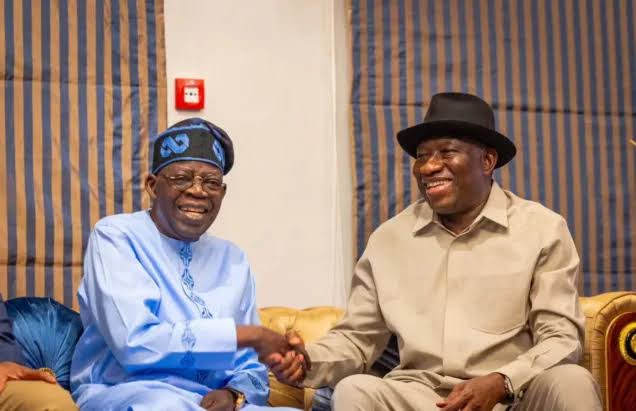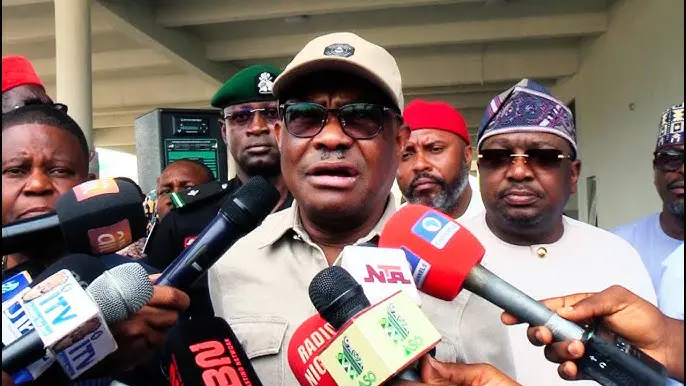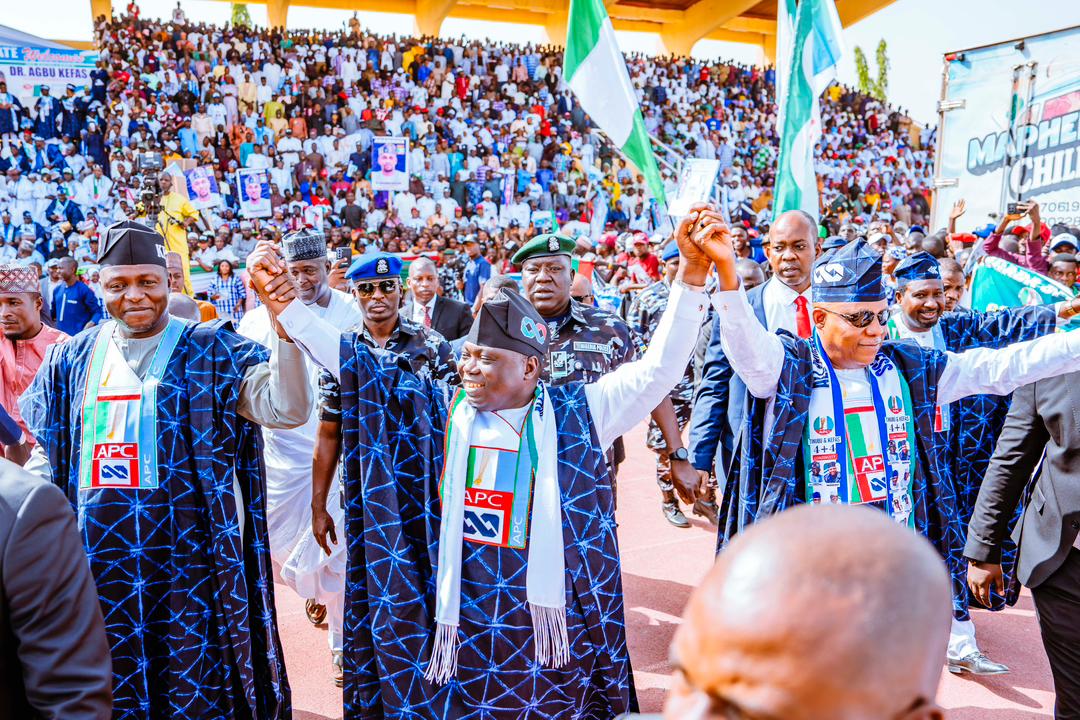President Bola Tinubu’s administration has said that Goodluck Jonathan’s “disastrous” presidential tenure will be a major obstacle if he chooses to contest the 2027 election.
Presidential spokesman Bayo Onanuga made this statement on Monday, reacting to claims by former Information Minister Jerry Gana that Mr Jonathan would run for president in 2027 on the platform of the Peoples Democratic Party.
Mr Onanuga dismissed Mr Gana’s comments as “delusional,” arguing that Nigerians will remember Mr Jonathan’s dismal record in office, stressing that the former President cannot stage a comeback after 12 years to defeat Mr Tinubu.
ALSO READ: Dangote Refinery: PENGASSAN Shuns Court Order, Vows To Continue Strike
“As we begin the march towards the 2027 elections prematurely foisted on the nation by the desperation of the opposition ganging up against President Bola Tinubu despite his glaring giant economic strides. One recent statement that stands out in its absurdity is Prof. Jerry Gana’s. The former minister of information and national orientation, moving to draft former President Goodluck Jonathan into the 2027 presidential race.
“He affirmed that the former president would contest the coming election on the platform of the discredited PDP, which bequeathed a legacy of economic ruins, after 16 years of bad governance. Gana even deluded himself, asserting that the former President would defeat President Tinubu to reclaim power after 12 years,” said the statement.
Mr Onanuga noted that the courts may need to rule on Mr Jonathan’s eligibility, given that he was sworn in twice as president and could face constitutional hurdles in seeking a third term.
He warned Mr Jonathan against being misled by “sugar-coated” PDP loyalists like Gana, saying their motives were selfish, ethnic, religious, and political—not patriotic.
Mr Onanuga claimed that the former president would be abandoned by the same political elite mid-race, just as in 2015, leaving him politically stranded again. He acknowledged Mr Jonathan’s constitutional right to run but stressed that Mr Tinubu would welcome the challenge, trusting the legal system to decide on eligibility.
“Let us remind ourselves about Jonathan’s record. We cannot forget in a hurry how his regime, devoid of any clear economic agenda, engaged in frivolous spending, ran the economy aground, and put the country in dire straits.
“The nation’s economic downturn, which President Tinubu is working very hard to overcome, actually began under President Jonathan. The Jonathan administration severely damaged the economy, and all key indicators declined under his watch,” Mr Onanuga stated. “Under him, the so-called business moguls allocated foreign exchange to import fuel, simply pocketing the dollars without importing anything. Some of those big men still have court cases on the issue today.”
The presidency also alleged massive corruption during Mr Jonathan’s time, particularly in security spending, citing his former National Security Adviser, Sambo Dasuki.
“In 2010, President Jonathan inherited a total of $66 billion, of which $46 billion was in foreign reserves and $20 billion in the noble-but-abused Excess Crude Account,” said the presidential spokesman. “By 2015, when the people democratically removed him from office, the foreign reserves had fallen below $30 billion, and the Excess Crude Account had been depleted to $2 billion, despite generating record revenue from crude oil sales that the country had never achieved in more than 25 years combined.”
The presidency added that from 2010 to 2013, crude oil sold for an average of $100 per barrel, yet by 2014, the government struggled to pay workers.
“By December 2014, however, the Jonathan-led federal government could no longer pay salaries to federal civil servants. At least 28 states across the country owed workers huge salary arrears,” said the statement.
In contrast, Mr Onanuga said the incumbent president had taken bold decisions to stabilise the economy in less than 30 months through subsidy removal and exchange rate unification.
“The president has stabilised the economy in slightly over two years in office. In 2025 Q2, the gross domestic product grew by 4.23%, the highest in four years, outpacing the 3.4% projected by the International Monetary Fund.
“Inflation decreased to 20.12% in August 2025, the lowest level in three years. The foreign reserves stand presently at $42.03 billion. The naira has virtually stabilised. Investor confidence in our economy has been restored, and investors are betting on Nigeria,” he explained.
(NAN)





